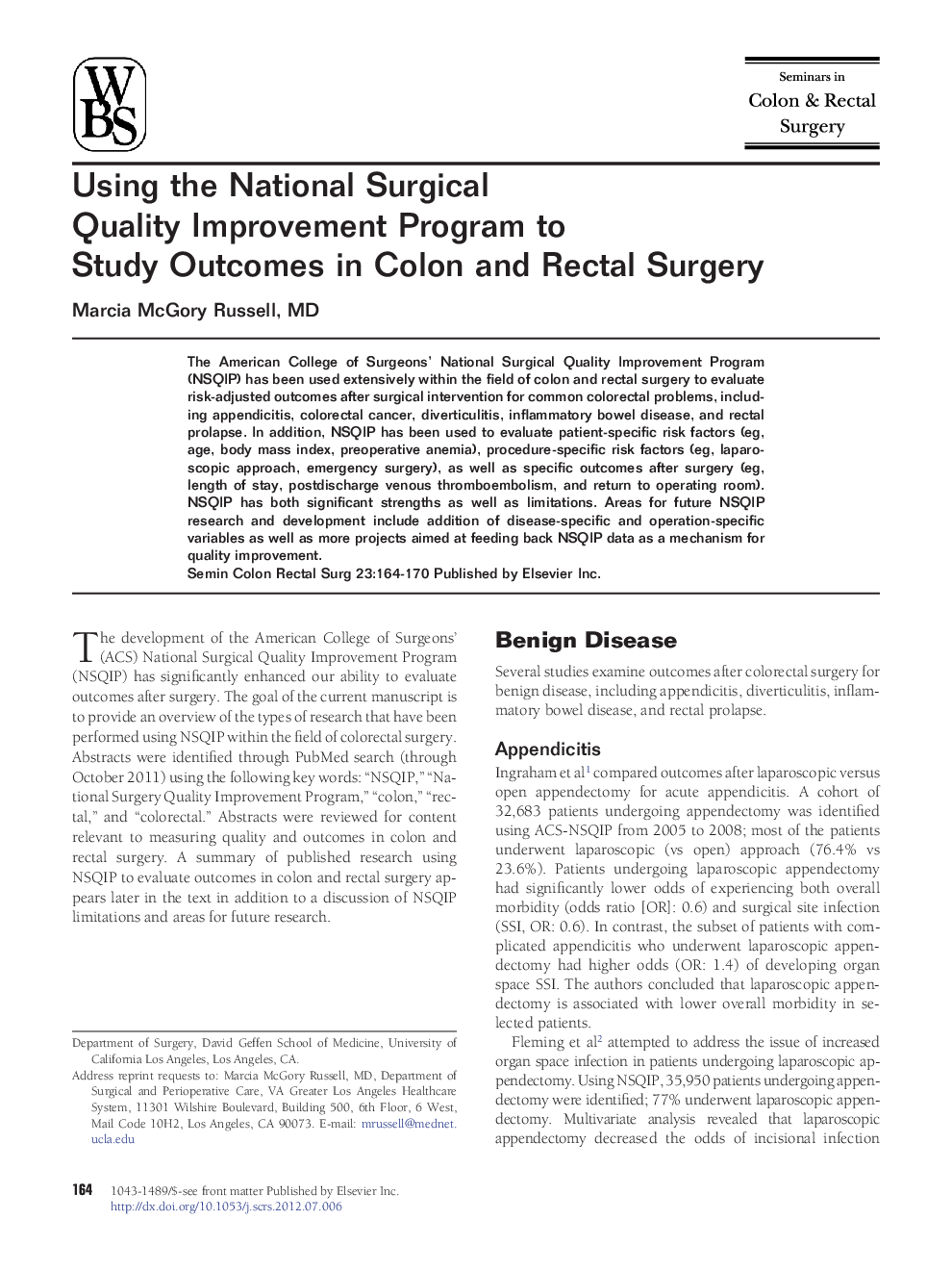| Article ID | Journal | Published Year | Pages | File Type |
|---|---|---|---|---|
| 3319384 | Seminars in Colon and Rectal Surgery | 2012 | 7 Pages |
Abstract
The American College of Surgeons' National Surgical Quality Improvement Program (NSQIP) has been used extensively within the field of colon and rectal surgery to evaluate risk-adjusted outcomes after surgical intervention for common colorectal problems, including appendicitis, colorectal cancer, diverticulitis, inflammatory bowel disease, and rectal prolapse. In addition, NSQIP has been used to evaluate patient-specific risk factors (eg, age, body mass index, preoperative anemia), procedure-specific risk factors (eg, laparoscopic approach, emergency surgery), as well as specific outcomes after surgery (eg, length of stay, postdischarge venous thromboembolism, and return to operating room). NSQIP has both significant strengths as well as limitations. Areas for future NSQIP research and development include addition of disease-specific and operation-specific variables as well as more projects aimed at feeding back NSQIP data as a mechanism for quality improvement.
Related Topics
Health Sciences
Medicine and Dentistry
Gastroenterology
Authors
Marcia McGory MD,
